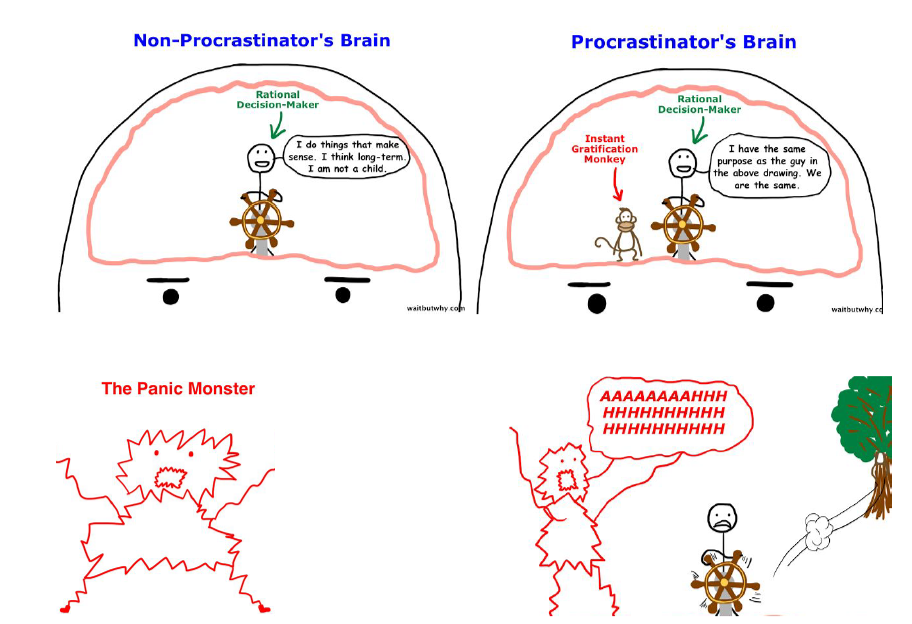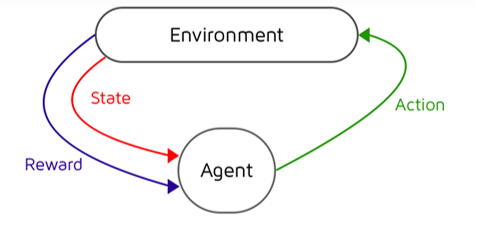Procrastination and Scheduling
Procrastination

Procrastination - There’s no one who haven’t heard about it. Almost all of us procrastinate.
There’s been a lot of psychological research going on, and researchers correlate this behaviour with various other disorders like ADHD, stress, anxiety etc. It might be a symptom indicating a mental disorder.
Nevertheless, some perfectly healthy people still do it. In this post I will provide a different view of procrastination.
Why People Procrastinate
This Ted Talk by Tim Urban explains it better in simpler terms. So, It’s a must watch.

I wouldn’t go into the details of the talk but here are some key take aways from the talk
- It introduces Instant Gratification Monkey which disrupts the rational decision making.
- The Panic monster which comes and scares away the monkey when we are an \(\epsilon\) away from the deadline.
The MDP model
For those of you who are acquainted with Reinforcement Learning must have heard about MDP’s.
So, Basically what I say is The actions we take in life and the outcomes that we experience can be modelled as a MDP (Here, it isn’t exactly Markovian but let’s approximate it for simplicity)

MDP description
An MDP can be described with the tuple \((s, a, r)\). Where
- \(s\) is the current state
- \(a\) is the action taken
- \(r\) is the reward gained (can be positive or negative)
Let’s assume the transitions are deterministic since, we are mostly under control of what we do.
Now, the paths we take must be such that the reward is maximised
Where
- \(\gamma\) is the discount factor
Our objective is to maximise the Total Reward (\(R\)), over the path we take, ie over (\(s_{1}, s_{2}, ..s_{n}\)), (\(a_{1}, a_{2}, ..a_{n}\)).
In our life the \(\gamma\) has a lot of importance.
\(\gamma\) is
- 0 for chronic procrastinators. So they just enjoy the current moment lazing off and reward is the pleasure they take from lazing off
- Higher for workaholics or non-procrastinators
So I think the main Idea is to understand, what is it that we could do to increase our \(\gamma\) ?